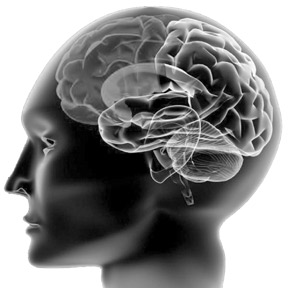Intelligence: the dividing factor
.jpg) The level of intelligence varies from person to person. So, we are
endowed with highly intelligent people like Albert Einstein and William
Shakespeare. On the other hand, we have idiots and buffoons whose
intelligence level is extremely low. Although both intelligent and
unintelligent people serve God, intelligence per se can mean different
things to different people. The level of intelligence varies from person to person. So, we are
endowed with highly intelligent people like Albert Einstein and William
Shakespeare. On the other hand, we have idiots and buffoons whose
intelligence level is extremely low. Although both intelligent and
unintelligent people serve God, intelligence per se can mean different
things to different people.
It is generally agreed that intelligence is the ability to learn,
understand and make judgements or have opinions that are based on
reason. So, we have intelligence tests to find out whether a particular
person has a high, average or low intelligence.
In the past psychologists assumed that there was a single general
factor for mental ability. They called it "g" or the "g-factor". It was
thought to underlie performance in every aspect of intelligence. In
fact, intelligence tests have been designed to measure the "g-factor".
 Although ordinary people view intelligence as a unitary entity,
recent research in psychology shows that it is a multi-dimensional
concept that includes different types of intelligence. Although ordinary people view intelligence as a unitary entity,
recent research in psychology shows that it is a multi-dimensional
concept that includes different types of intelligence.
Some of us are good at information processing capabilities, logical
reasoning and memorising facts and figures. They are good at solving
crossword puzzles and knotty problems. According to psychologists, they
are gifted with what is called "fluid intelligence." Those who juggle
with statistics and figures use their "fluid intelligence" to the
maximum. I feel that my "fluid intelligence" is very low because I did
not do well in my Arithmetic paper in the senior school certificate
examination!
On the other hand, some people have the capacity to accumulate
information and various skills. They apply this crystallised
intelligence in problem solving. Those who are gifted with this type of
intelligence have the ability to recall information from their long-term
memory without much trouble. Elderly people retain their "crystallised
intelligence" quite easily. However, they show declines in "fluid
intelligence" as they grow old.
Some of our villagers and fisherfolk show remarkable abilities
although nobody seems to have gauged their intelligence using modern
methods. For instance, a farmer knows when it would rain and a fisherman
knows when he should avoid going to the sea. Even the ancient Trukese
who used their own system of navigation did not have access to
complicated navigational tools. But they were exemplary navigators.
Although we take intelligence for granted, psychologists have been
dissecting it for many decades. Psychologist Howard Gardner who
developed a theory of multiple intelligences divided intelligence into
eight parts which are inter-dependent. In addition to the eight types -
musical, bodily kinesthetic, logical mathematical, linguistic, spatial,
inter-personal, intra-personal and naturalist - Gardner said there could
be even more types of intelligence.
Where is intelligence located? Using brain-scanning methods,
psychologists have found that intelligence resides in certain areas of
the brain. Although the areas cannot be demarcated precisely, the area
above the outer edge of the eyebrow is supposed to be critical to
juggling many pieces of information and solving problems.
In our day-to-day dealings we come across people gifted with
practical intelligence. They have the presence of mind to take a crucial
decision. Such people generally live happily because they know how to
deal with mundane problems. Sometimes practical intelligence may not be
related to one's education. That is why we have professors who cannot
solve minor domestic problems.
Very often we come across people of high IQ (Intelligence Quotient)
floundering while those of modest IQ do surprisingly well. Daniel
Goleman in his ground-breaking book Emotional Intelligence shows the
factors at work such as self-awareness, self-discipline, and empathy
that add up to a different way of being smart. He says that emotional
intelligence is not fixed at birth. It can be nurtured and strengthened
throughout adulthood. The book gives us an entirely new way of looking
at the root causes of many of our problems.
The late Dr. Abraham T. Kovoor who was a rationalist and iconoclast
in one of his lectures said, "We are born with brains without any
intelligence." He compared the brain to an empty pocket. Constant
learning would fill the brain with intelligence, he said. I do not think
any psychologist would agree with this view.
Psychologists, however, debate whether intelligence is fixed at birth
or whether a person can improve it through learning. Entity theorists
believe that no amount of life experience or hard work can change a
person's intelligence. On the contrary, incremental theorists say that
intelligence is something flexible and variable.
The fast growing literature on intelligence is something we can look
forward to with abiding interest. After all, it is intelligence that
separates the wheat from the chaff.
|

